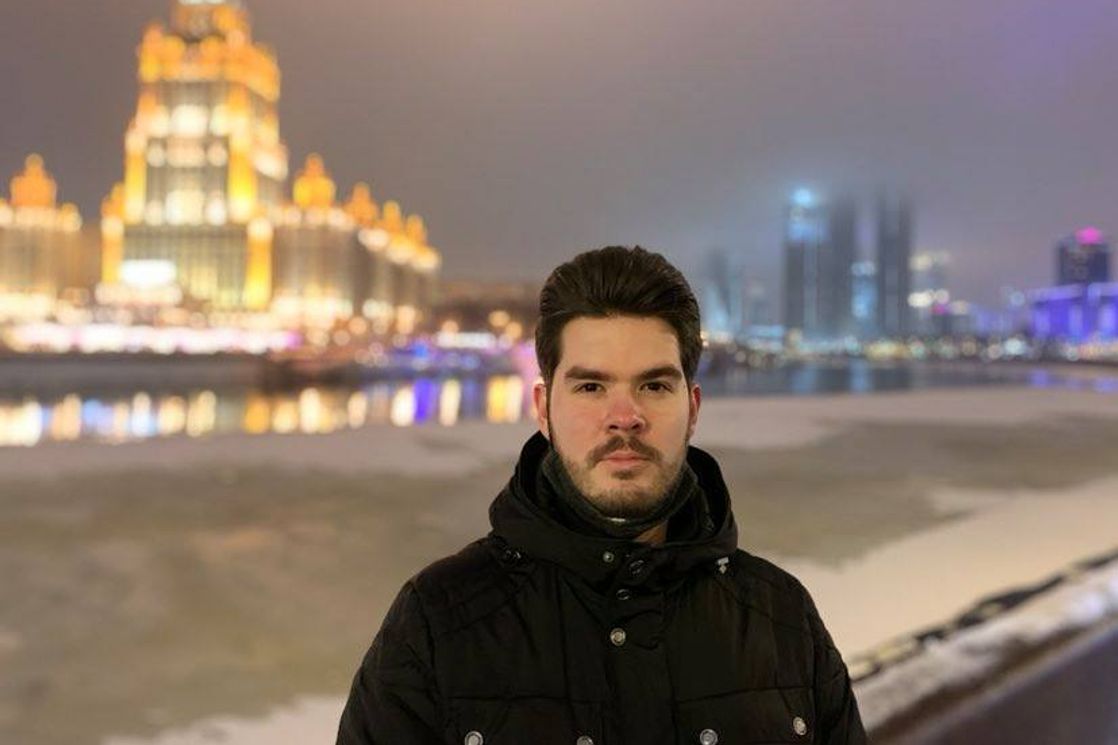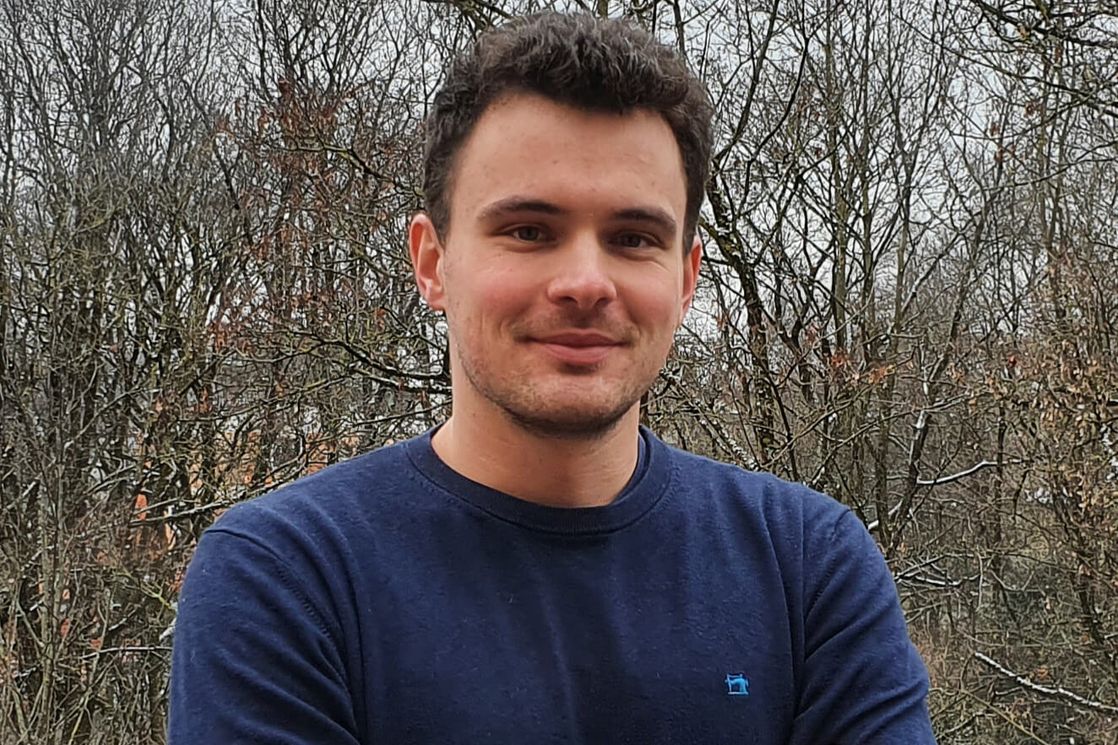Master's Programme 'Politics. Economics. Philosophy': Perfect Combination of Three Disciplines
Modelled on classical British programmes, the HSE Master's Programme 'Politics. Economics. Philosophy' (PEP) helps students delve deeper into economics and political science, broaden their philosophical outlook, develop their critical thinking skills, and enhance their social and academic capital. HSE News Services spoke with current first-year student Tamás Barnák and programme alumnus Franz Walternberger about why they chose PEP and what it is like to study at HSE University.

Tamás Barnák, from Budapest, Hungary, was initially planning to pursue a Master’s degree in economics at HSE University, but after starting the Preparatory Year he decided to apply to the Master's Programme 'Politics. Economics. Philosophy' (PEP).
Politics. Economics. Philosophy is a Master’s programme where people with the background in any of the three disciplines can apply. I came here with a philosophy major and international studies minor background from Pázmány Péter Catholic University.
My first choice was Economics, not PEP. Luckily, I participated in the preparatory year, where I studied Russian. There I found this programme and I quickly decided to change.
Bot decisions were actually rational. I choose Economics at first because I wanted to widen my current knowledge in philosophy towards economics, which I believe can be a very strong combination.
When heard about PEP for the first time, I knew that this is what I want.
It perfectly combines the three disciplines. I think I made the best possible decision to study what I really want.
I think HSE University can give me the chance to study new and manageable amount of materials that can be useful in my future career. I’d also like to have an opportunity to make publications on international platforms. I haven't published anything yet, but the possibilities are obviously present, and I hope to make a publication in the near future on a topic that interests me.
I applied to HSE through the Russian Cultural Centre in Budapest, where I had to go through a multi-stage approval. I would characterize it as lots of paperwork and effort, but it pays off in the end. The programme change took place already here, in Moscow, during the preparatory year. That was a bit smoother since I had most of the documents done.
Preparatory Year
One of the best teachers in Preparatory Year was Vasiliy Kuza who taught history. He could show new, unknown aspects of Russian history. Also, Valeria Kirova, our math teacher was able to prepare us for the final exam successfully, which was quite a challenge in my case after not studying math for 8 years.
Maria Rostovskaya was one of our teachers of Russian language. I would describe her as the master of phonetics. She made us pronounce letters we didn't even know existed. She made the lessons very interactive and interesting. The same can be said about Ekaterina Kornakova, who is an experienced teacher with good and interesting plans that made every lesson interesting.
Master’s Programme Courses
Multidisciplinarity is among the biggest challenges for me. The programme tries to combine three different disciplines, which requires lots of effort, background knowledge, time, and energy. However, by trying to meet these requirements and organize my work, I can manage to prepare well enough. But of course, there are times when I feel like I'm underwater.
The amount of the material that needs to be learned is huge and sometimes new, which can be really hard. There is also the problem of multitasking, which is a side effect of the online format. All our lectures are arranged in a fully online format, which has its advantages (such as saving time on traveling) and disadvantages (missing out on social life).
In the PEP programme, it is really hard to pick only one teacher and subject I enjoy because there are quite a few interesting topics we are studying.
Since it is my first year, there are many courses ahead, but to just to mention a few, I really liked:
Still, this is only a limited list of the subjects I liked, and there are many interesting ones ahead, such as Political Ethics with Boris Kapustin or Heidegger and Contemporary Philosophy from the university-wide of electives.
'I Would Recommend the Programme to My Friends'

Franz Waltenberger graduated from PEP programme in 2020. He is currently living in Munich and working as a doctoral candidate at the Center for Digital Technology and Management (CDTM), a joint institution of the TU and LMU Munich.
For me the PEP programme was a very good choice. After my bachelor's degree, I felt the need to expand my understanding of the world and that's exactly what the programme helped me achieve. Often times I catch myself thinking about ideas and facts that are directly related to the classes I took during my master's at the HSE.
The greatest thing I got from the programme was an overarching knowledge in politics, but also economics.
I think my initial knowledge of philosophy was too little to fully benefit from the classes, but it worked really well in politics and economics. The most influential professor I had was Mikhail Mironyuk who provided me with excellent guidance and supervision during my work on my thesis. I also very much enjoyed the classes of Oleg Ananyin and the one and only Leonid Grigoryev, which were both entertaining and enlightening. Additionally, I can very much recommend the classes of Israel Marques, an outstanding educator and expert in his field.
In terms of soft skills, it really is hard to distinguish between the programme and Moscow itself. The overall experience was very good in terms of personal growth. I learned to reach out to others if in need, to fight through hard times and that I could rely on the help of my classmates in case I got stuck.
I would recommend the programme to my friends, however advise them that they should think about what they are looking for. I am sure that there are more "comfortable" master's programmes in terms of visa, bureaucracy, climate, language and cultural barriers but on the other hand I did not look for something comfortable when I applied.
I wanted a challenging programme and an opportunity for personal growth and that's exactly what I got and why I am happy with my choice.
I am still in touch with several students and I am carefully optimistic that once Corona is over and we can travel again there will be even more contact. For the next four years, I will continue pursuing my PhD - afterwards I am not sure what I'll be doing, but who knows in these times. But I hope I'll still be learning Russian with my teacher from Moscow via Zoom!
HSE University welcomes applicants from all over the world and offers not only different levels of study, but also different formats in English and Russian, online and offline. International applicants can apply for Bachelor’s and Master’s degree programmes in a separate admissions process for foreign applicants and receive scholarships with full or partial tuition fee coverage.
Master’s applicants also have the opportunity to get a preliminary assessment of their portfolio and communicate with their programme of choice online. There are also ZOOM consulations available for graduate and undergraduate applicants.
To learn more about HSE University, its admission process, or life in Moscow, please visit International Admissions website, or contact the Education & Training Advisory Centre at: inter@hse.ru, or via WhatsApp at: +7 (916) 311 8521.
Vladimir S. Avtonomov
Professor, Department of Theoretical Economics
Oleg I. Ananyin
Professor, Department of Theoretical Economics
Maria Rostovskaya
Visiting Lecturer, School of Linguistics
Alexei Gloukhov
Associate Professor, School of Philosophy and Cultural Studies
Ilya Gorelskiy
Lecturer, School of Politics and Governance
Leonid M. Grigoryev
Academic Supervisor of the School of World Economy
Boris Kapustin
Professor, School of Politics and Governance
Ekaterina Kornakova
Senior Lecturer, School of Linguistics
Vasily A. Kuza
Visiting Lecturer, School of History
Boris Makarenko
Professor, School of Politics and Governance
Mikhail Mironyuk
Acadenuc Supervisor of Master's programme 'Politics. Economics. Philosophy'

